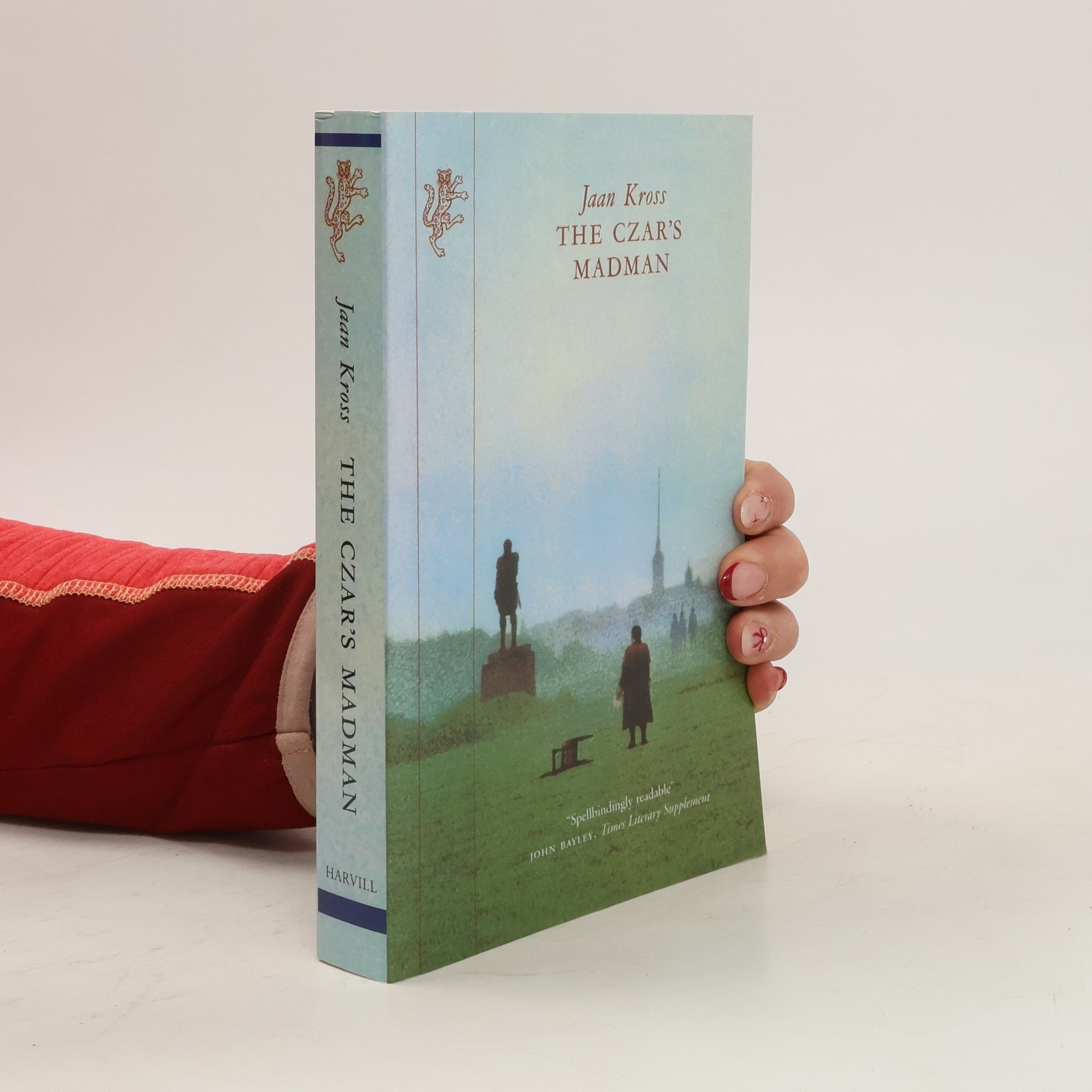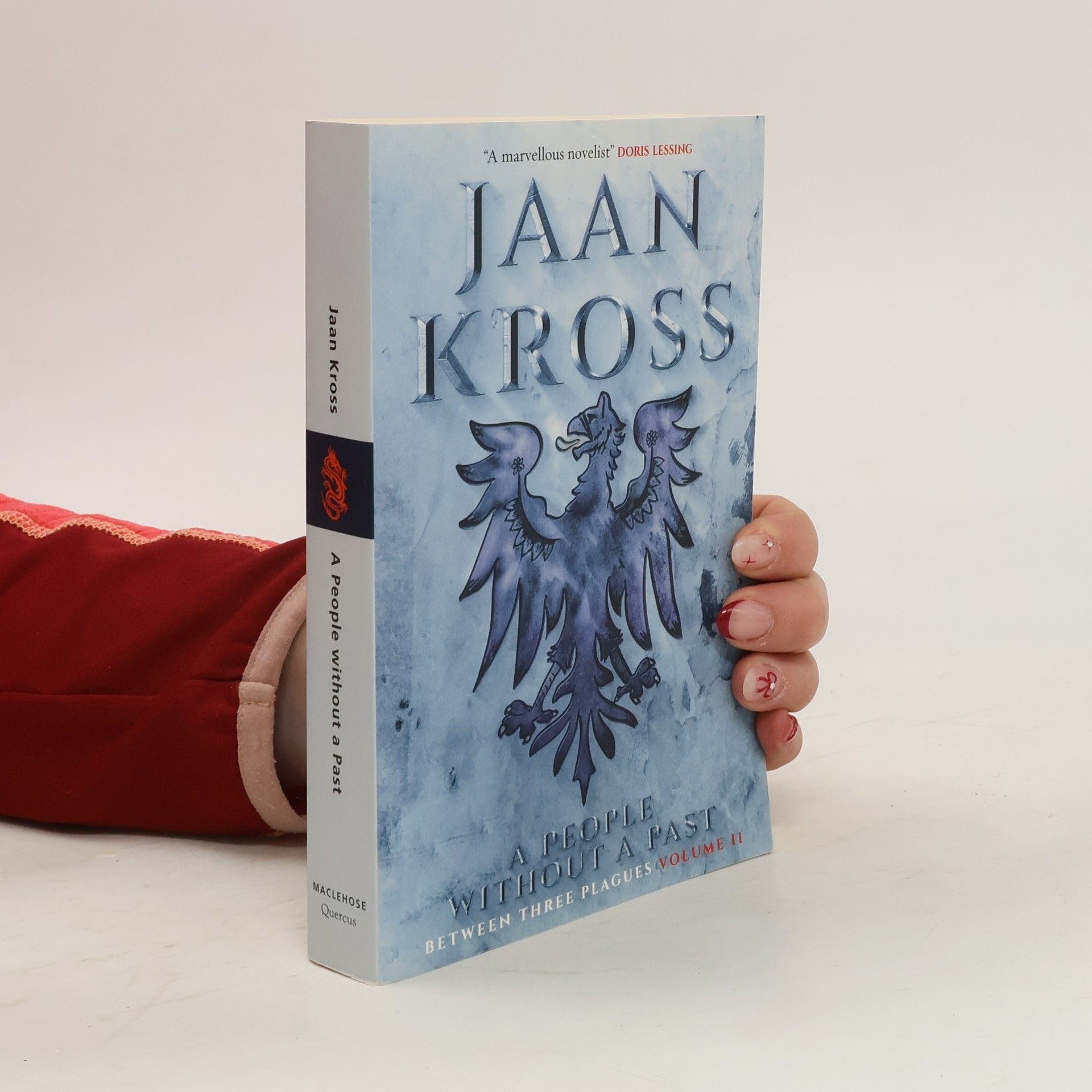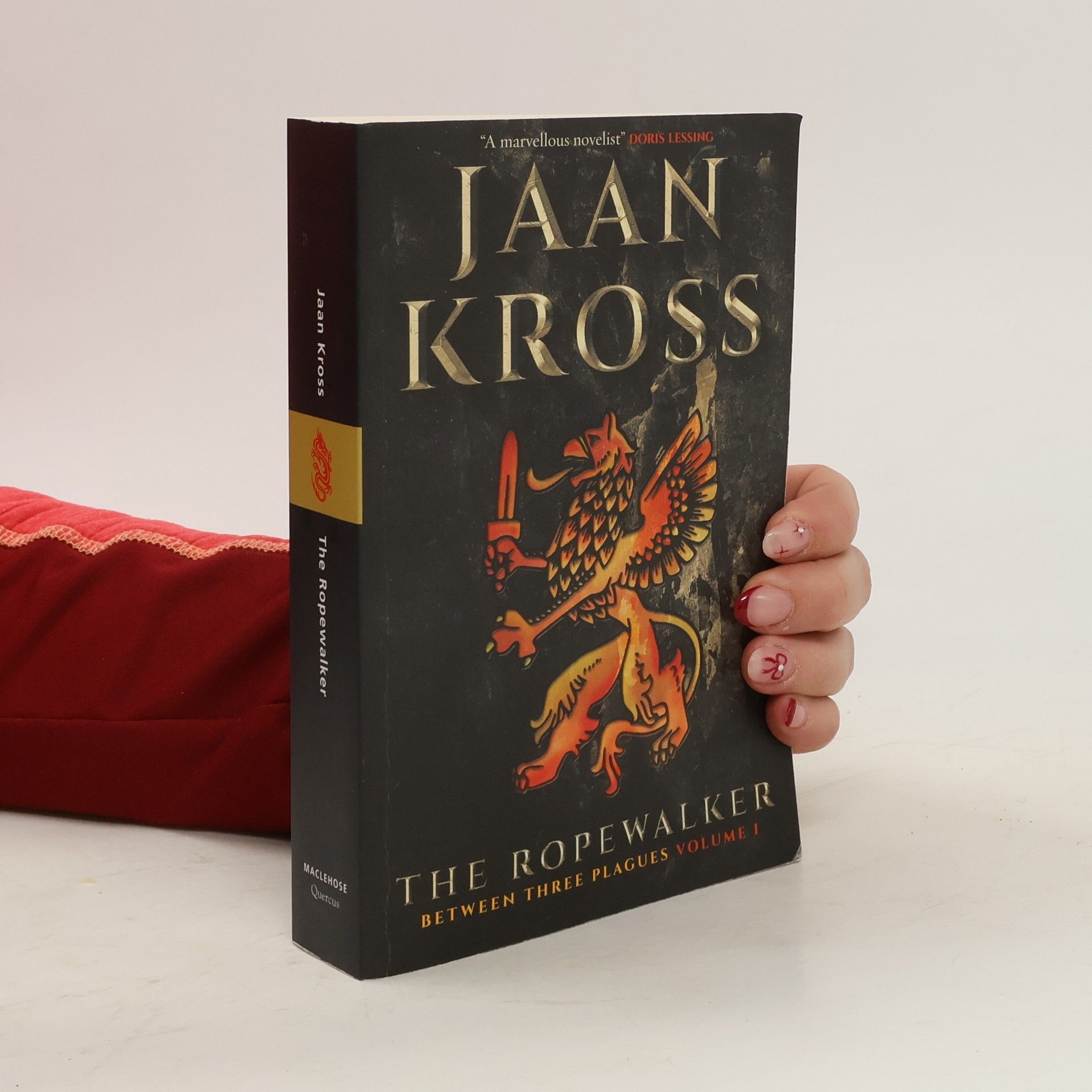A Book of Falsehoods
- 400 pages
- 14 hours of reading
The story of a man who rose from peasant stock to become Estonia's most famous medieval chronicler - The third novel in a historical trilogy by Estonia's most famous writer
Jaan Kross, Estonia's most renowned and translated author, crafts historical novels centered on the moral dilemmas of his characters. His protagonists, often on the fringes of society, grapple with complex ethical questions across Estonian history. Initially a poet and translator, Kross revitalized Estonian poetry with new directions after his return from Russian labor camps. His prose work progressively approaches contemporary times, drawing from personal experience and a profound engagement with the past.







The story of a man who rose from peasant stock to become Estonia's most famous medieval chronicler - The third novel in a historical trilogy by Estonia's most famous writer
The first part in an epic historical trilogy - The Estonian answer to Wolf Hall - by the nation's greatest modern writer Jaan Kross's trilogy dramatises the life of the renowned Livonian Chronicler Balthasar Russow, whose greatest work described the effects of the Livonian War on the peasantry of what is now Estonia. Like Hilary Mantel's Thomas Cromwell, Russow is a diamond in the rough, a thoroughly modern man in an Early Modern world, rising from humble origins to greatness through wit and learning alone. As Livonia is used as a political football by the warring powers of Russia, Sweden, Poland and Lithuania, he continues to climb the greasy pole of power and influence. Even as a boy, Russow has the happy knack of being in the right place and saying the right thing at the right time. He is equally at home acting as friend and confidante to his ambitious patron and as champion for his humble rural relatives. Can anything halt his vertiginous rise? Like most young men he is prey to temptations of the flesh . . .
The story of a man who rose from peasant stock to become Estonia's most famous medieval chronicler - The second novel in a historical trilogy by Estonia's most famous writer
Timo von Bock's release by the Czar from nine years' incarceration does not spell the end of the Baron's troubles: he is confined to his Livonian estate to live under the constant eye of police informers planted among his own household, and is subjected to endless humiliations. It is claimed that he is a madman and in need of 'protection'.
Reval in der zweiten Hälfte des 16. Jahrhunderts: Balthasar Rüssow, eine authentische historische Figur, lebt als unbestechlicher Verfasser einer Chronik von Lyffland in seiner bewegten Zeit so lange in bürgerlichem Ansehen, bis sein Wahrheitsanspruch mit den Interessen der Obrigkeit kollidiert. Eines Tages lädt Rüssow selbst einen Spitzel zu sich ins Haus, der ihn nicht nur ans Messer liefern will, sondern auch ein Auge auf seine Frau geworfen hat. Jaan Kross erzählt Rüssows Geschichte als eindringliche Parabel über die Gefährdungen der Freiheit durch Zensur, Unterdrückung und Willkürherrschaft.
Roman
Der Roman "Gegenwindschiff" von Jaan Kross, dem bedeutendsten estnischen Schriftsteller der zweiten Hälfte des 20. Jahrhunderts, erschien 1987. Hauptperson der Erzählung, die Kross nicht als Biographie, sondern allenfalls als "romanisierte Biographie“ verstanden wissen will, ist der verschrobene Tüftler und Erfinder Bernhard Schmidt. Als Jugendlicher verliert Schmidt beim Experimentieren mit Schießpulver seine rechte Hand. Trotzdem perfektioniert er die manuelle Fertigung von Linsen und Spiegeln für astronomische Geräte und erfindet ein völlig neuartiges Spiegelteleskop, das in der Astrofotografie erfolgreich verwendet wird. Auch andere Erfindungen ersinnt dieser kreative Geist, der ab 1926 in der Sternwarte von Hamburg-Bergedorf arbeitete: das titelgebende "Gegenwindschiff" ist ein gänzlich anders geartetes Segelschiff, das besonders gut im Gegenwind Fahrt aufnimmt
In Estland gehört dieser Roman des bedeutendsten Gegenwartsautors des Landes zum Kulturgut. Protagonist des Romans ist der junge Jaak Sirkel, der das Wikmannsche Gymnasium in Tallinn besucht, eine der anerkanntesten Lehranstalten Estlands. Es ist die Zwischenkriegszeit, die goldene Zeit aller drei baltischen Staaten. Während sich die Esten in dieser Phase an der Unabhängigkeit ihres Landes erfreuen, ist die Schulzeit der Zöglinge ereignisreich und voll der Herausforderungen des Erwachsenwerdens. Übermütige Schulstreiche, harsche Auseinandersetzungen mit Lehrern und Eltern und erste zarte Liebesgeschichten bestimmen ihren Alltag. Der impulsive Jaak und sein eher stiller Freund Riks verehren beide Virve, die reizende Zwillingsschwester eines Klassenkameraden – aus Freunden werden Rivalen. Die unbeschwerte Zeit endet jäh, als der Krieg beginnt. Die muntere kleine Gesellschaft wird in alle Himmelsrichtungen zerstreut. Jaak macht sich verzweifelt auf die Suche nach Virve … Wikmans Zöglinge ist eine lebendige, anekdotenreiche Schulgeschichte, eine Art Feuerzangenbowle auf großer literarischer Bühne. Endlich erscheint einer der letzten großen historischen Romane von Jaan Kross in deutscher Sprache.
Widely read in Europe, the Estonian novelist Jaan Kross is considered one of the most important writers of the Baltic region, and is an often-named candidate for the Nobel Prize. His new historical novel, Professor Martens' Departure, is written in a classic elegaic style reminiscent of Giuseppe di Lampedusa's The Leopard, and it evokes the complex world of czarist Russian society at the turn of the century. The character of Professor Martens is based on all actual official of the czarist reign, a distinguished Estonian jurist curiously reminiscent of Henry Kissinger. Faced with a dire financial crisis in Russia, Professor Martens orchestrates a major loan from the French government to stave off famine; as time passes, however, he realizes that he has managed to perpetuate a brutal regime that keeps its political prisoners in chains. This fictional memoir, written at the end of Martens' life, finds him reliving his past and questioning the degree to which he has sacrificed himself to maintain a corrupt regime, one that ultimately disdains both him and his people. Considered an outsider by the czar's adviser, Martens is nonetheless needed for his skills. Still, he is marginalized and kept in the shadows. Far more than just a political or philosophical novel, Professor Martens' Departure is an astonishing reconstruction of czarist Russia.